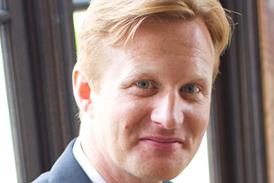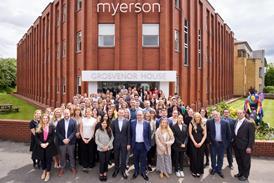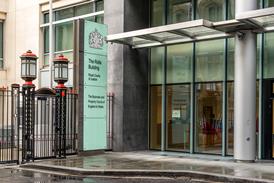A disgruntled litigant who repeatedly turned up to a law firm office and harassed staff members has been barred from the immediate vicinity.
International firm Clyde & Co sought restrictions on the movements of litigant in person Christopher Kennedy after he attended its Birmingham office on at least 16 occasions – including several on the same day.
The court heard that Kennedy had remained on site for two hours or more and had at times gained access by tailgating other visitors or Clyde staff despite being refused entry.
Her Honour Judge Carmel Wall said Kennedy made unauthorised videos of the premises and staff which he then posted on social media. Reception staff and the workforce as a whole found his behaviour so upsetting that security officers and the police were called on more than one occasion.
Kennedy was not aggressive or violent to those he encountered but his conduct was found to be objectively ‘oppressive and unacceptable’ to the extent that staff stopped wearing any ID badges in the vicinity of the office and avoided the reception area because of the anxiety he caused.
Filming and posting videos of staff was ‘intimidation’, said the judge - not legitimate evidence gathering, as Kennedy claimed.
The judge said there was a risk of financial and other damage to the firm and its staff if an injunction was not granted.
‘The persistent conduct of the defendant has made the first claimant’s workforce at the Birmingham office feel vulnerable and anxious in their place of work,’ she said. ‘Receptionist staff have had unauthorised photographs posted on social media.' The firm has had to pay for additional security because of Kennedy's behaviour, she said. 'There has been a cost to the public purse when the police have been called to attend because the defendant has not left the Birmingham office when asked.’

Clyde partner Julian Smart told the court that colleagues had asked to be anonymous as they were afraid to be identified. Smart submitted that Kennedy had threatened in the past to ‘bury him’ and said he would ‘see him in the ground’.
Kennedy accepted that he visited the Birmingham office on many occasions but claimed that this had been for a legitimate purpose and not as frequent as alleged. He submitted that Clyde & Co has represented clients with whom he has a genuine grievance and that the firm has obstructed his access to the individual lawyers dealing with these claims. He suggested that his visits had only been to identify and then speak to the relevant staff member about monies he said were rightfully due to him.
The judge said that if Kennedy’s initial visit was justified because he did not understand the firm’s procedures, it was not reasonable for him repeatedly to attempt to enter the Birmingham office when it was clear he was unwelcome.
‘He has no reason to attend the Birmingham office and has no right to enter it,’ added the judge. ‘There is no obstacle to him communicating with [the firm] if he needs to do so. Although the defendant argues that an injunction is a disproportionate remedy and stifles his access to justice, neither is in fact the case.’
Kennedy, who is already subject to a civil restraint order, will be excluded from the Birmingham office and prohibited from entering the area directly in front. He can communicate with the firm only through the designated email address. The injunction will last for the foreseeable future.
The judge noted that Clyde’s counsel had been subject to ‘wholly unacceptable rudeness and intimidation’ from Kennedy. Throughout the trial, the litigant had been ‘argumentative, confrontational and rude’ and at times abusive and offensive in his remarks. The judge terminated Kennedy’s cross-examination of Smart after two hours and 20 minutes after warnings not to use his questions to make a speech.


























